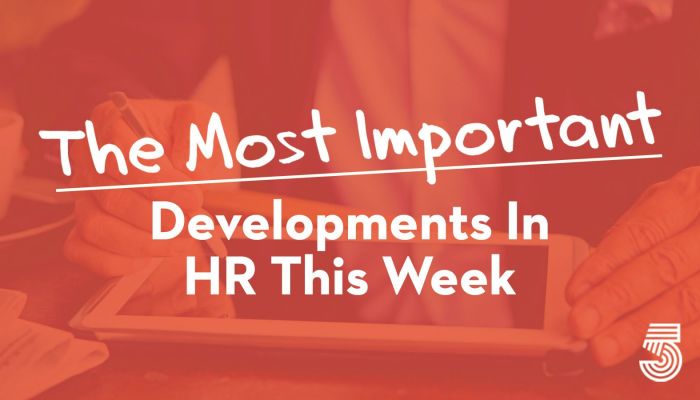The M.I.D., as we call it, is curated by our editorial team from more than 50 news sources. Like a lot of good ideas, this started as something I wanted for myself. If I can’t read everything, I at least want to stay abreast of the most important developments.
This week in HR, employers are bumping pay to combat inflation, it was still a job seeker’s market, women needed more from their employers, workplace fairness was debated and there was a disconnect between bosses and employees.

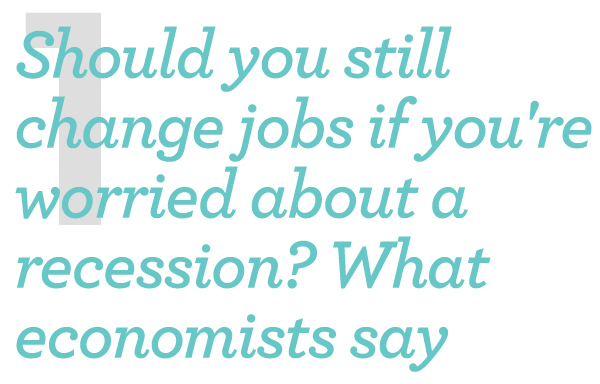
The job market is holding strong despite ongoing concerns of a recession. There were 11.3 million job openings in May, or roughly two jobs for every unemployed worker, according to the latest Job Openings and Labor Turnover Survey. May marked six straight months of more than 11 million job openings, and 12 straight months of more than 4 million people voluntarily leaving their job. The strong labor market stands in stark contrast against growing recession fears — 70% of Americans believe an economic downturn is on its way, driven by concerns over high inflation, rising housing prices and a volatile stock market, according to one MagnifyMoney survey. So is it a good time or a bad time to change jobs? Here’s what economists say. It’s still a job-seeker’s market and employers have an “insatiable demand to hire,” says Andrew Flowers, a labor economist at Appcast and research director at Recruitonomics. Current job postings are 61% higher than they were pre-Covid, according to Bureau of Labor Statistics data. As for people who are seeing opportunities in their field right now, Flowers says to “strike while the iron is hot.” CNBC Business

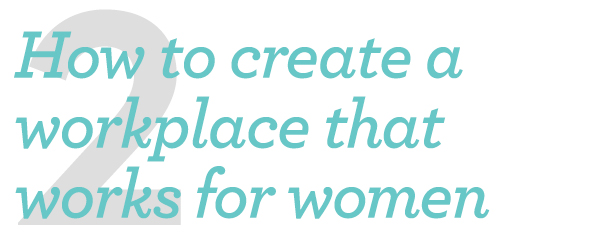
The impact of the pandemic has been uneven, inequitably impacting women and their progress and participation in the workforce. From navigating shifting childcare and eldercare needs to new perceptions of how and where work should take place, women are redefining their expectations of work and the environment in which they can best thrive. And as the talent market continues to experience strain, HR leaders are looking for any advantage. While men and women have largely recovered lost ground in certain sectors, such as information technology and professional services, women are experiencing a slower recovery elsewhere. In industries where women have long held advantages, such as hospitality, education, healthcare and childcare, their share is falling. Increasing female participation in the workforce isn’t just a “nice thing to do.” It’s crucial to economic recovery. To bring more women back, HR leaders and management must consider how they can address the needs of women at work, as well as the needs of their families and communities. HRE

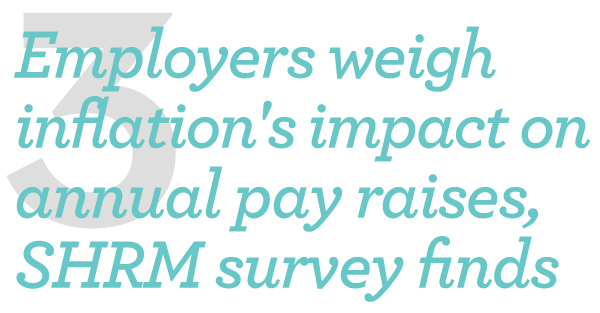
HR professionals are concerned about the effects of inflation on their organizations, including how inflation will affect annual pay raises for the remainder of 2022, according to new findings from the SHRM Research Institute. HR professionals responding to SHRM’s survey said the effects of rising costs on the lives of their employees was their greatest inflation-related concern. Among the roughly 70 percent of respondents who said they were aware of their organizations’ plans for annual pay raises, 63 percent reported that inflation was being considered or accounted for in annual pay raises this year. Among HR respondents who were aware of their organization’s pay raise plans, those who said that inflation is being considered or accounted for in annual pay raises included: 76% at small organizations, 65 % at medium organizations, 54% at large organizations. SHRM
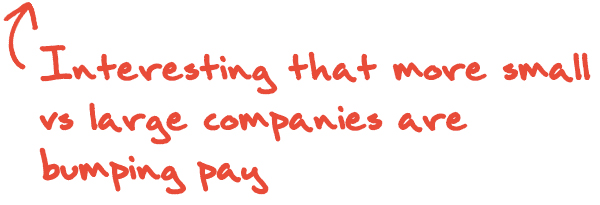
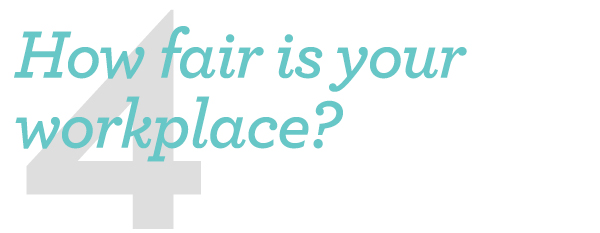
In the last two years, questions of fairness have expanded beyond DEI. For example, is it fair to pay employees who work remotely from a lower cost-of-living location the same as employees who work from a higher cost-of-living location? Is it fair to mandate vaccines for employees? The reality is that most employees don’t feel like their work environment is fair. Of the 3,500 employees we surveyed worldwide in 2021, only 18% indicated they work in a high-fairness environment. These results can have significant implications for employers — perceptions of a more fair employee experience improves employee performance by up to 26% and employee retention by up to 27%. Fairness will become even more important in the coming years. During the pandemic, we’ve seen new fault lines emerge: yes, along the lines of gender, race, ethnicity, or age, but also between parents and non-parents, salaried and hourly workers, and those whose jobs can be done remotely versus those who must work on site. HBR

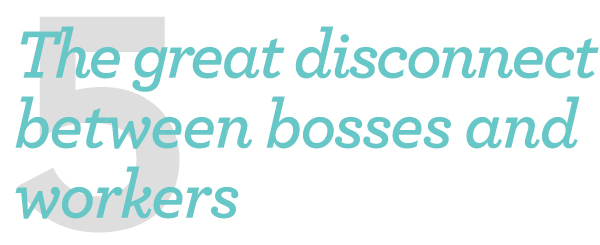
A new study conducted by the Future Forum surveyed more than 10,000 workers globally in the summer of 2021 and found an “executive-employee disconnect,” as it relates to getting back to an office setting. The survey results show big differences between executives and employees ranging from return-to-office preferences to perceptions of transparency, employee experience and how workers are feeling. Employees self-reported that they are more than four times more likely than executives to want to work remotely full time. Despite their preference, the majority of executives are building return-to-the-office plans that favor the perspective of the C-suite over what employees say works best for them. Most executives (66%) report they are designing post-pandemic workforce policies with little to no direct input from employees. About two-thirds of executives (66%) believe they’re being “very transparent” regarding their “post-pandemic” policies, but less than half of workers (42%) agree. Forbes






